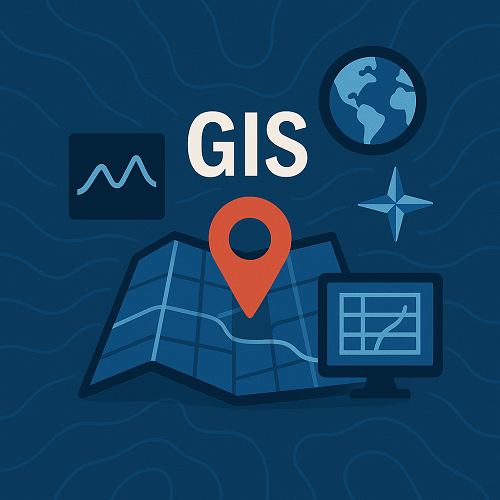The world of business is ever-changing and evolving, with technology at the forefront of these changes. As a business owner, keeping up with the latest innovations is crucial to stay ahead of the competition. One of the most exciting advancements in recent years is Geographic Information System (GIS) technology. In this article, we’ll explore the future of business innovation and uncover cutting-edge GIS technology applications to help you outpace your competition.
What is GIS technology?
GIS technology is a system that allows businesses to analyze and manage spatial and geographic data. Essentially, it helps organizations make sense of the location-based information that is critical to their operations. By visualizing data in this way, companies can make more informed decisions about everything from inventory management to customer targeting.
How can GIS technology drive innovation?
One way GIS technology is driving business innovation is through enhanced collaboration. With GIS, companies can share data with multiple stakeholders in an interactive way. This means that teams can work together to analyze and interpret data in real-time, leading to faster decision-making and more streamlined operations. In addition, GIS can be used to optimize logistics and supply chain management, helping companies reduce costs and improve efficiency.
What are some cutting-edge GIS technology applications?
One cutting-edge application of GIS technology is predictive analysis. By analyzing data points such as customer locations and purchasing behaviors, businesses can predict future trends and tailor their operations accordingly. For example, GIS can be used to optimize store layouts to increase foot traffic or to identify the most profitable locations for new store openings. Another exciting application of GIS is in augmented reality. By overlaying location-based data onto a smartphone camera view, businesses can create immersive experiences for customers, such as in-store treasure hunts or virtual tours.
What are the challenges of adopting GIS technology?
One challenge that businesses face when adopting GIS technology is the cost. Implementing GIS can be expensive, and there may also be significant training and IT costs associated with the adoption. Additionally, the technology can be complex and requires specialized expertise to use effectively.
What is the future of GIS technology?
The future of GIS technology looks bright, with continued advancements in the field. For example, machine learning and artificial intelligence will enable businesses to automate many GIS processes, freeing up time for more strategic decision-making. Additionally, cloud-based GIS solutions will make the technology more accessible and affordable for small businesses.
In conclusion, GIS technology is a game-changer for businesses looking to outpace the competition. By leveraging location-based data, companies can make more informed decisions and operate more efficiently. While there are challenges associated with the adoption of GIS, the benefits far outweigh the costs. As we look to the future of business innovation, GIS technology is sure to play an increasingly important role.
FAQs:
1. Is GIS technology only useful for large businesses?
No, GIS technology can benefit businesses of all sizes. While the initial implementation costs may be higher for small businesses, cloud-based GIS solutions are making the technology more accessible.
2. Does GIS technology require specialized IT expertise?
While some level of expertise is required to implement and use GIS technology, many providers offer training and support to make adoption easier.
3. Can GIS technology be used in marketing?
Yes, GIS technology can be used in marketing to target and analyze customer demographics and location-based behavior.
4. How secure is GIS technology?
As with any technology, the security of GIS depends on the measures taken by the implementing company. However, many providers offer robust security features to protect data.
5. What industries can benefit from GIS technology?
GIS technology can benefit a wide range of industries, from retail and logistics to healthcare and real estate. Any business that relies on location-based data can benefit from implementing GIS.
